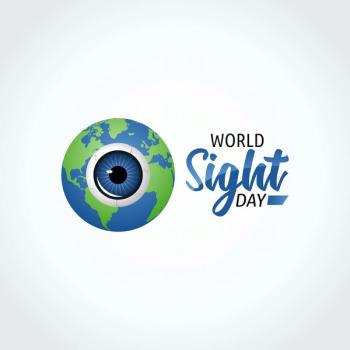
This Week in Ophthalmology is a video series highlighting some of the top articles featured on the Ophthalmology Times website.

This Week in Ophthalmology is a video series highlighting some of the top articles featured on the Ophthalmology Times website.

A team of researchers from Johns Hopkins Medicine and the University of Wisconsin-Madison conducted a study on the application of autonomous artificial intelligence and testing for diabetic eye disease.

The American Academy of Ophthalmology indicates that consumers who may see the eye color-changing drops advertised and used on TikTok or elsewhere online should be advised that they are not FDA approved.

The day will be held on October 10. It is coordinated by the International Agency for the Prevention of Blindness under the “Love Your Eyes” campaign banner, and is putting children at the center of the campaign.

Australian researchers have found that clinical registries may be an untapped font of information for artificial intelligence.

The product candidate is a modifier gene therapy for broad retinitis pigmentosa indication.

Researchers at the Medical College of Georgia at Augusta University are teaming up with Polaris Dawn to gain a better understanding of how eye changes many astronauts experience during spaceflight could ultimately leave them with multiple symptoms once they return to Earth.

According to researchers at Nanyang Technology University Singapore, smart contact lenses can be used to correct vision, monitor the health of the user, and flag and treat diseases for patients diagnosed with chronic health conditions such as glaucoma and diabetes.

In a 10-year retrospective study, a team of researchers in China found the top 2 categories for cancellations were medical factors and patient-related factors.

This Week in Ophthalmology is a video series highlighting some of the top articles featured on the Ophthalmology Times website.

The Phase 1 trial is a multicenter, open-label, dose-escalation safety clinical trial, with 18 subjects, who each have received a single periocular injection of AIV007

The next step for the research likely will focus on determining whether blocking GSK3 can reverse existing AMD damage, potentially leading to new treatment options.

At the World Ophthalmology Congress in Vancouver, Canada, John D. Sheppard, MD, MMSc, FACS, presented data on perfluorohexyloctane ophthalmic solution in the treatment of dry eye. He sat down with Ophthalmology Times to discuss the topic in further detail.

According to a study by a team of Korean researchers, published in BMC Ophthalmology, investigators conducted a retrospective study to examine the prevalence and clinical characteristics of ocular allergy in glaucoma patients using brinzolamide 1.0%/brimonidine 0.2% fixed combination (BBFC), with and without concurrent β-blocker.

At the World Ophthalmology Congress in Vancouver, Canada, Mahnia Madan, OD, FAAO, presented a paper on the tolerability of cosmetic products on the ocular surface. She sat down with Ophthalmology Times to discuss the topic in further detail.

Investigators at the Faculty of Medicine at the University of Augsburg in Germany , found that in the eye of the mouse macrophages are already forming in the vitreous body in the embryonic stage.


According to the company, the priority review voucher would be issued upon approval of OPGx-LCA5.

According to the company, the pre-clinical safety and efficacy studies of its product have yielded positive results in 3 internationally recognized labs in India, Singapore and the United States.

Going forward, the company will operate under the Ocuvex name, building on Visiox's commitment to disrupting the ophthalmic market through high-level collaboration with eye care professionals.


In a study, Australian ophthalmology and optometry researcher and Beatles fan Professor Stephen Vincent has analyzed John Lennon’s little-known, hit-and-miss use of contact lenses in the 1960s and found the Rock and Roll Hall of Famer was probably right when he theorized that his cannabis use helped them stay in place.

This Week in Ophthalmology is a video series highlighting some of the top articles featured on the Ophthalmology Times website.


Stephen R. Russell, MD, discussed the 9-year data he presented at the American Society of Retina Specialists annual meeting for voretigene neparvovec-rzyl.


Eastern Kentucky University student Madison Carlisle experienced rapid vision loss until the team at UK HealthCare was able to unravel the source of her issues.

Sadda is the second person to serve as chair. The first chairholder was John Irvine, MD, who was appointed to the role in 2001.

The NIH-funded study finds lack of coverage, copays, restrictive policies barriers to vital eye care for adults.

According to the company, the priority review voucher would be issued upon approval of ATSN-201, a gene therapy product candidate.